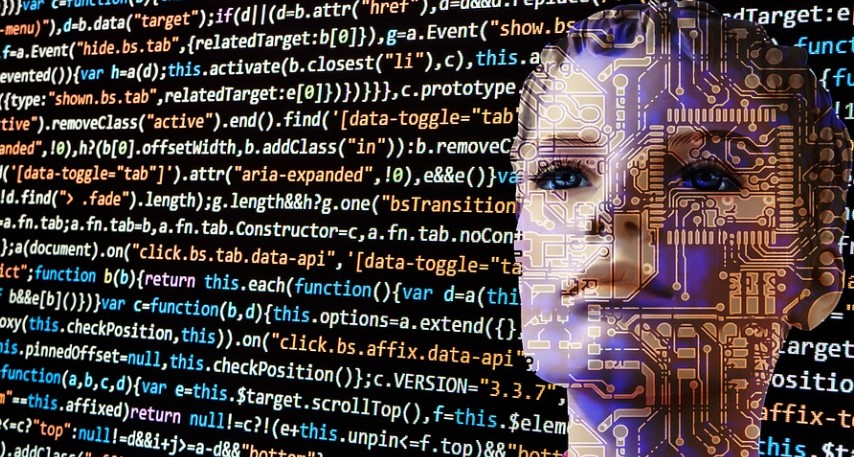Future advancements in Artificial Intelligence (AI) will significantly impact your daily life over the next decade. From enhanced machine learning capabilities to job market changes and healthcare advancements, AI’s potential is vast. However, as AI continues to evolve, it is crucial for you to consider the ethical implications and ensure responsible use through proactive regulation. Let’s explore how AI will shape your world in the coming years.
Key Takeaways:
- Expanded Capabilities: AI will continue to solve increasingly complex problems through enhanced machine learning and natural language processing.
- Job Market Changes: While some jobs may be replaced by automation, new opportunities will emerge for those with relevant AI skills.
- Daily Life Integration: AI will become more integrated into daily routines, from automated home systems to autonomous vehicles.
- Healthcare Advancements: AI will revolutionize healthcare with more accurate diagnostics and personalized treatments.
- Ethical Considerations: Regulations will be crucial to ensure the responsible and ethical use of AI technologies, addressing issues like bias, fairness, privacy, and security.
Current Impact of AI
A cutting-edge technology like Artificial Intelligence (AI) is already making significant impacts across various sectors in your daily life. In the business and industry sector, AI has automated manufacturing and logistics, improved decision-making in finance and banking, and enhanced customer service and marketing. The last decade alone has seen a surge in AI development due to advancements in computing power, data availability, and machine learning algorithms.
Business and Industry
The utilization of AI in business and industry sectors has been transformative. The technology has enabled automation in manufacturing and logistics processes, streamlined decision-making processes in finance and banking, and enhanced customer service and marketing strategies. With the rapid pace of AI development, businesses are finding innovative ways to leverage AI to improve efficiencies and stay competitive in the market.

Healthcare
The healthcare sector has been revolutionized by the integration of AI technology. From medical diagnosis to drug discovery and personalized medicine, AI is playing a crucial role in advancing healthcare services. As AI continues to evolve, the accuracy of diagnostics and personalized treatments will only improve, leading to better patient outcomes and healthcare efficiency.
AI has the potential to personalize learning experiences, create intelligent tutoring systems, and automate assessment and grading in education. The technology is shaping the future of education by adapting to individual learning needs and enhancing the overall learning experience for learners.
Education
An impactful role AI is playing in the education field is the personalization of learning experiences, the creation of intelligent tutoring systems, and the automation of assessment and grading. With AI technologies, educators can tailor learning experiences to individual needs, provide personalized feedback, and enhance the overall learning process for students.
AI is transforming various sectors from business and industry to healthcare and education, making significant impacts on your daily life. As AI continues to evolve and become more integrated into our lives, it is crucial to stay informed about the latest developments and advancements in the field.
Future Prospects of AI
It is clear that the future of AI holds immense potential for transformative change. With advancements in machine learning and natural language processing, AI is expected to solve increasingly complex problems with greater efficiency.
Expanded Capabilities
On the horizon are AI systems that can analyze vast amounts of data in real-time, enabling more accurate predictions and decision-making. As AI continues to evolve, it will play a crucial role in various industries, revolutionizing how we work and interact with technology.
Job Market Changes
To adapt to the evolving landscape, it is important for individuals to upskill and acquire knowledge in AI-related fields. While automation may lead to some job displacement, the demand for roles in AI development, data analysis, and machine learning is expected to rise significantly in the coming years.
With the right skills and expertise, you can position yourself for new opportunities in the job market driven by AI technologies. By embracing AI and honing your skills in relevant areas, you can stay ahead of the curve and thrive in the rapidly changing digital economy.
Daily Life
For improved daily life experiences, AI will continue to integrate into various aspects of your routine. From smart home systems that anticipate your needs to autonomous vehicles that navigate traffic seamlessly, AI will enhance convenience and efficiency in your day-to-day activities.
The integration of AI into everyday life will create a more connected and personalized environment. By leveraging AI technologies, you can streamline tasks, access information quickly, and enjoy a more tailored experience in various aspects of your life.
Healthcare Advancements
The future of healthcare will see significant advancements driven by AI technologies. With more accurate diagnostics, personalized treatments, and innovative approaches to drug discovery, AI will revolutionize how healthcare is delivered and improve patient outcomes.
Future healthcare advancements enabled by AI will offer individuals more precise and personalized medical solutions, leading to better health outcomes and more efficient healthcare delivery. Understanding the potential of AI in healthcare is crucial for ensuring continued progress in medical research and patient care.
Ethical Considerations in AI
Keep in mind that as AI technology continues to advance and integrate into various aspects of our lives, ethical considerations become increasingly important. With the potential for AI to influence decision-making, improve efficiency, and personalize experiences, it is crucial to address ethical implications to ensure responsible use of these technologies.
Consider the data-driven nature of AI applications in healthcare, finance, and education. The algorithms used in AI systems are only as unbiased as the data they are trained on. Without careful attention to bias and fairness, AI systems could unintentionally reinforce existing prejudices or disparities, impacting decision-making and outcomes.
Privacy and security concerns around the collection and use of personal data in AI systems cannot be ignored. With the vast amount of data being collected and processed by AI algorithms, protecting individuals’ privacy and ensuring data security are paramount to maintain trust and transparency in AI technologies.
Summing up
Ultimately, the future of AI holds immense potential to shape various aspects of your life in the next decade. With expanded capabilities in problem-solving, machine learning, and natural language processing, AI is poised to revolutionize industries, create new job opportunities, and integrate seamlessly into your daily routines. From automated home systems to autonomous vehicles, AI will continue to enhance efficiency and improve the quality of life for you and those around you.
However, it is crucial to always consider the ethical implications of AI’s influence. From issues of bias and fairness to privacy and security concerns, regulations must be in place to ensure the responsible and ethical use of AI technologies. By proactively addressing these considerations, you can harness the benefits of AI while mitigating potential risks and ensuring a positive impact on society as a whole.
FAQ
Q: What is Artificial Intelligence (AI)?
A: Artificial Intelligence (AI) is a cutting-edge technology that allows machines to emulate human intelligence by recognizing patterns, making decisions, and learning from experiences.
Q: How has the development of AI evolved over the years?
A: AI has been around for several decades, initially applied to military and industrial use cases. The last ten years have seen a significant surge in AI development and application due to advancements in computing power, data availability, and machine learning algorithms.
Q: What are some current impacts of AI in different sectors?
A: AI has already brought transformative changes in business and industry by automating manufacturing and logistics, in healthcare by aiding in medical diagnosis and personalized medicine, and in education by automating assessment and grading.
Q: What are the future prospects of AI?
A: The future of AI holds immense potential for expanded capabilities, changes in the job market, integration into daily life, and advancements in healthcare with more accurate diagnostics and personalized treatments.
Q: What ethical considerations are important with the rise of AI?
A: As AI grows in influence, ethical considerations such as bias, fairness, privacy, and security become paramount. Regulations will be crucial to ensure the responsible and ethical use of AI technologies.


























